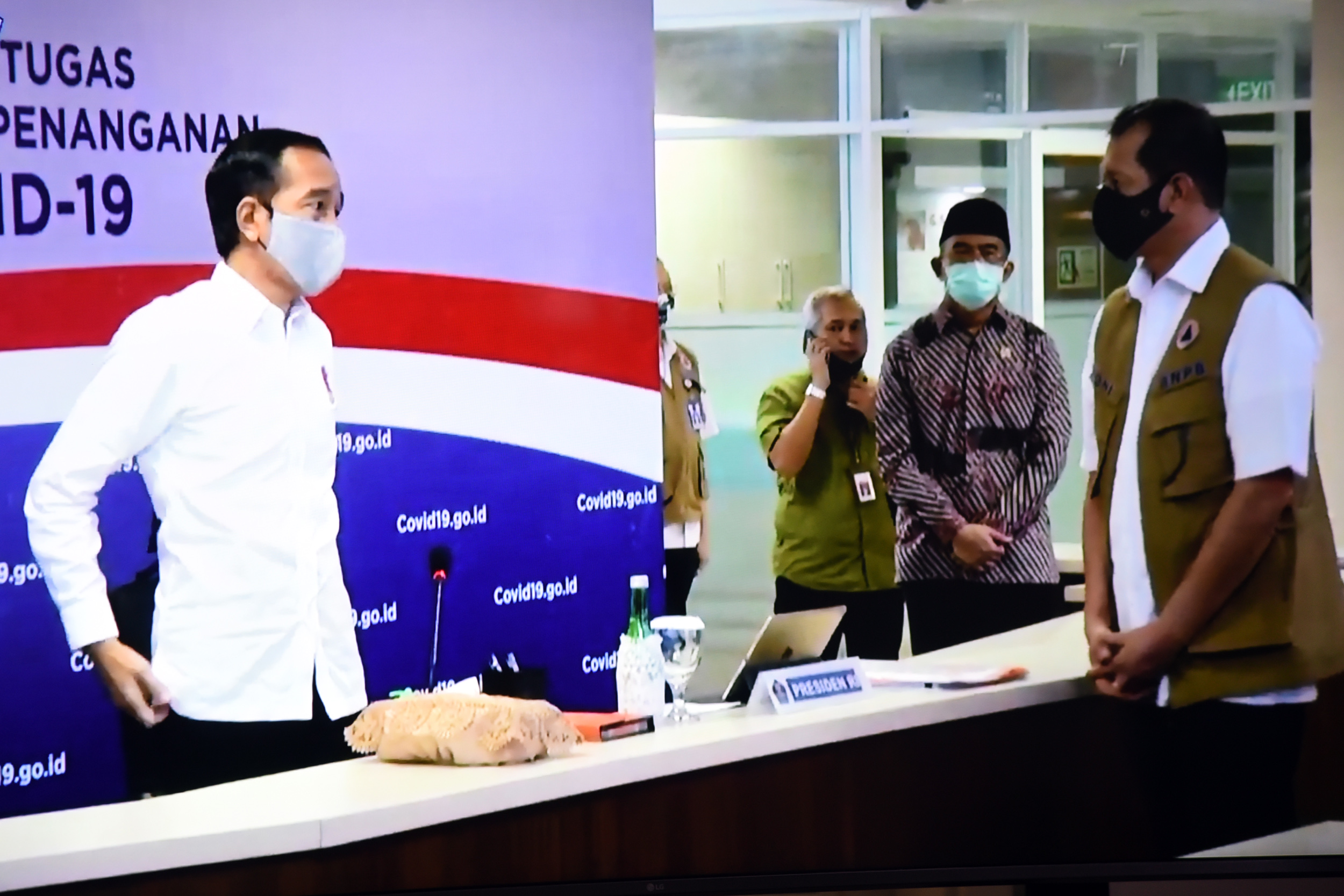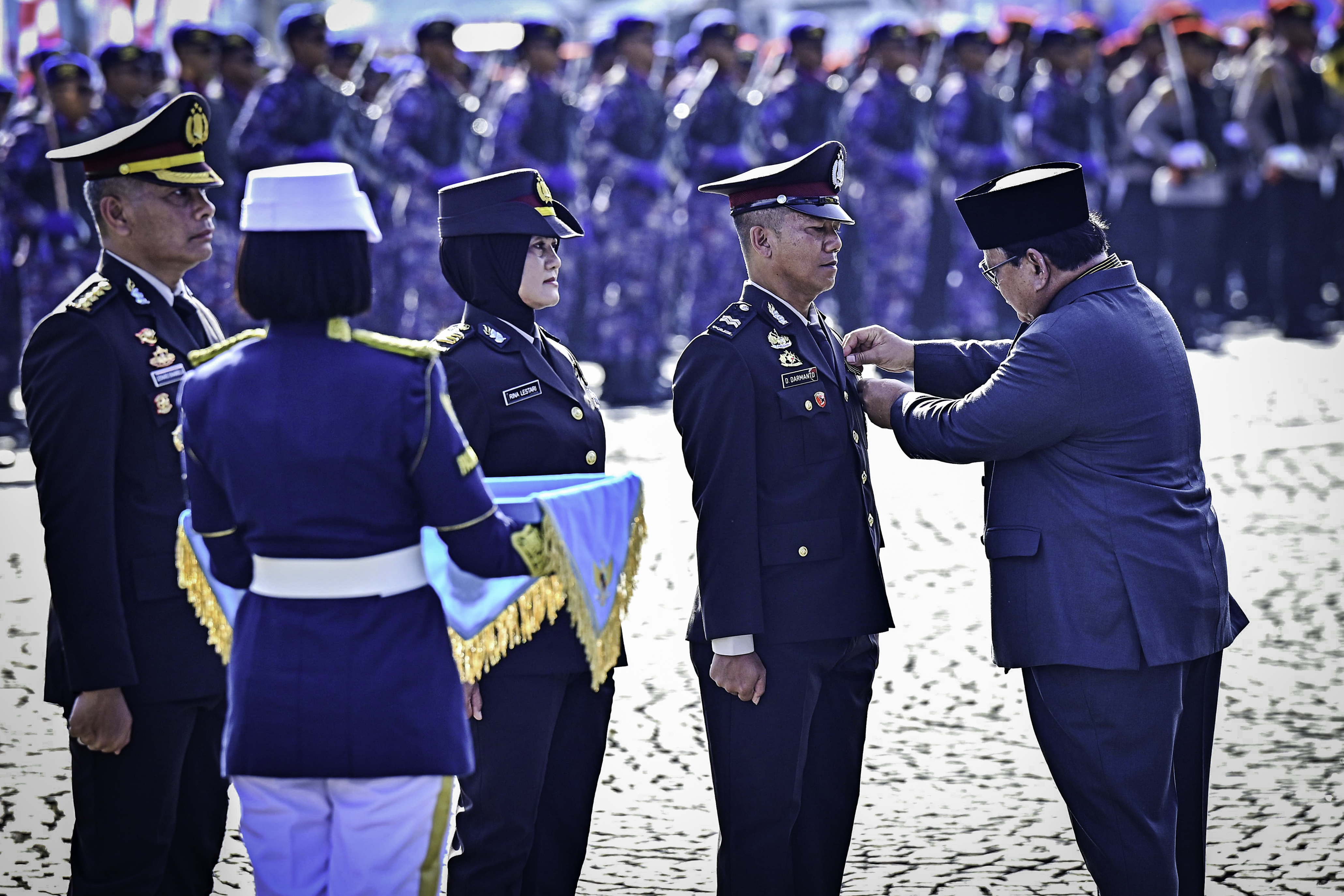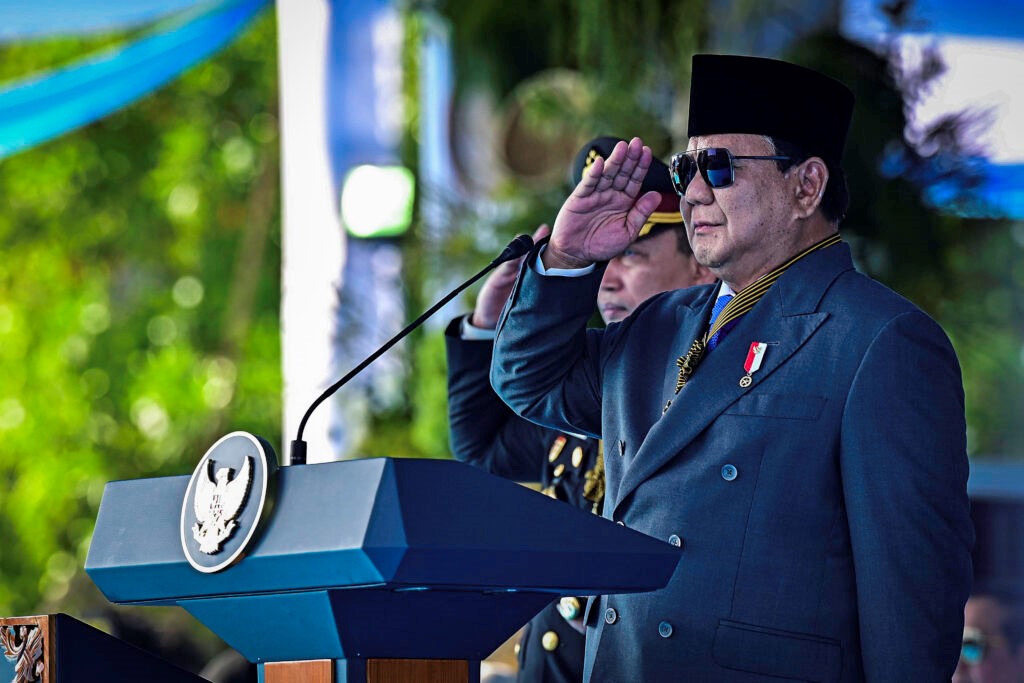President Jokowi Thanks COVID-19 Task Force Personnel for Hard Work in Tackling Pandemic

President Jokowi pays a visit to the COVID-19 Task Force Office at the National Disaster Management Agency (BNPB) Office, Jakarta, Wednesday (10/6). (Photo by: Jay/PR)
President Joko “Jokowi” Widodo has expressed appreciation and gratitude to personnel the COVID-19 Task Force both, be it at the central and regional levels, villages, neighboring unit (RT) and community unit (RW) levels for the efforts and hard works in the handling of COVID-19 pandemic.
The President also expressed appreciation to all medical workers, doctors, nurses, volunteers, as well as the Indonesian National Police (Polri) and the Indonesian National Defense Forces (TNI) who have worked around the clock to tackle the pandemic.
“There are regions where the number of new cases has dropped but there are also others where the number has increased. There are also regions that see zero cases. Let me remind you that we must anticipate the second wave. This is what I want to remind all of us,” the President said during his visit to the COVID-19 Task Force Office at the National Disaster Management Agency (BNPB) Office, Jakarta, Wednesday (10/6).
To that end, the President stressed that the task is not over yet. The disease, he added, still poses a threat and the circumstance is still dynamic, while adding that the situation will continue to persist until the vaccine is found and effectively used.
“If the vaccine is found, there must still be clinical trials, field tests, and it takes time to mass produce the vaccine. Therefore, we must adapt to the new normal and we must not give up nor lose hope,” he said, adding that everyone must start with new habits in accordance with health protocols so the public can remain productive and also safe from the virus.
According to the President, the new normal protocols must be carefully followed based on data and field facts.
“The data is complete. Regions with highest cases or deaths must be monitored so that all regions have the same precautions in handling the pandemic on the ground,” he said, adding that the Government has used comprehensive scientific-based indicators in compliance with World Health Organization standards to analyze data from the regions.
“Earlier, Prof. Wiku, doctor Dewi explained that there are regencies with a green zone without any cases, a yellow zone is a region with a small risk, an orange zone is a region with a moderate risk, and a red zone a region with a high risk,” the President said. (FID/EN)
Translator: Muhardi
Reviewed by: M. Ersan Pamungkas








